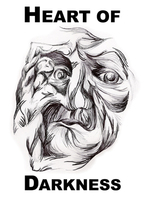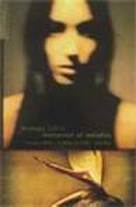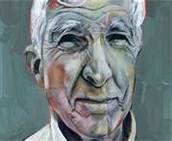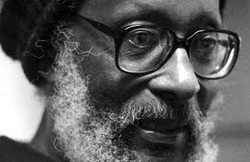No man, for any considerable period, can wear one face to himself, and another to the multitude,
without finally getting bewildered as to which may be the true.
— Nathaniel Hawthorne, The Scarlet Letter
Essential Questions
1. What is identity?
2. Do individuals create culture or does culture create individuals?
3. How is our sense of who we are determined by who came before us? How does knowledge of history limit or broaden our potential?
4. What factors could cause individual or group identity to change or remain the same? (for example, from generation to generation?)
5. We can be influenced to “identify with” or to “identify against”. How has this been manipulated historically?
6. How do personal experiences of history influence perceptions and identity?
7. Is personal identity more important than group identity?
8. Is how we identify ourselves more important than how others identify us?
9. Why do certain events influence identity while others do not?
2. Do individuals create culture or does culture create individuals?
3. How is our sense of who we are determined by who came before us? How does knowledge of history limit or broaden our potential?
4. What factors could cause individual or group identity to change or remain the same? (for example, from generation to generation?)
5. We can be influenced to “identify with” or to “identify against”. How has this been manipulated historically?
6. How do personal experiences of history influence perceptions and identity?
7. Is personal identity more important than group identity?
8. Is how we identify ourselves more important than how others identify us?
9. Why do certain events influence identity while others do not?
Unit Reading List:Classic Text
JOSEPH CONRAD, Heart of Darkness CHINUA ACHEBE, Things Fall Apart Modern Text JHUMPA LAHIRI, Interpreter of Maladies Fiction NATHANIEL HAWTHORNE, Young Goodman Brown JOHN UPDIKE, A & P JOYCE CAROL OATES, Where Are You Going, Where Have You Been? ANA MENÉNDEZ, In Cuba I Was a German Shepherd Poetry JOHN MILTON, When I consider how my light is spent ALEXANDER POPE, The Quiet Life WILLIAM WORDSWORTH, The World Is Too Much with Us RALPH WALDO EMERSON, The Apology EMILY DICKINSON, I’m Nobody! Who are you? E. E. CUMMINGS, the Cambridge ladies who live in furnished souls COUNTEE CULLEN, Heritage DYLAN THOMAS, Fern Hill GWENDOLYN BROOKS, We Real Cool MAHMOUD DARWISH, Identity Card KAMAU BRATHWAITE, Ogun GARY SOTO, Mexicans Begin Jogging SHERMAN ALEXIE, The Powwow at the End of the World JULIA ALVAREZ, First Muse NATHALIE HANDAL, Caribe in Nueva York Nathalie Handal on Writing Paired Poems ELIZABETH BARRETT BROWNING, To George Sand: A Desire ELIZABETH BARRETT BROWNING, To George Sand: A Recognition Visual Texts FRIDA KAHLO, Self-Portrait on the Borderline between Mexico and the United States FRIDA KAHLO, Self-Portrait Dedicated to Leon Trotsky Conversation: The Legacy of Colonialism The Colonization of Africa, 1880–1939 (map) RUDYARD KIPLING, The White Man’s Burden (poetry) H. T. JOHNSON, The Black Man's Burden (poetry) DORIS LESSING, The Old Chief Mshlanga (fiction) FELIX MNTHALI, The Stranglehold of English Lit (poetry) CHINUA ACHEBE, An Image of Africa (nonfiction) BINYAVANGA WAINAINA, How to Write about Africa (nonfiction) Agenda
|
Multi-Media Resources:In October 2008, John Updike spoke with Sam Tanenhaus, the editor of the New York Times Book Review, about the craft of fiction and the art of writing.
Joyce Carol Oates speaks for the Book Passage bookstore in Corte Madera, CA; she reads from her book The Gravedigger’s Daughter and answers questions about her writing.
Why Is “"Where Are You Going, Where Have You Been?" dedicated to Bob Dylan? Joyce Carol Oates discusses what Bob Dylan had to do with her short story "Where Are You Going, Where Have You Been?"
Ana Menenedez talks with Celeste Fraser Delgado about history and poetry in her latest novel, The Last War, at the Miami Book Fair International 2009.
Sean Barrett reads John Milton’s poem “On His Blindness.”
Click logo to listen.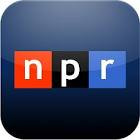
“John Milton, 400 Years of ‘Justifying God to Men’” on NPR: Tom Vitale and others describe Milton’s importance to English literature.
Click logo to listen.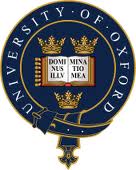
Author Phillip Pullman opens an exhibit on Milton at the Bodleian Library in Oxford and discusses the continued relevance of Paradise Lost.
Click logo to listen.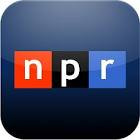
NPR describes Wordsworth’s and Coleridge’s impact on English literature, helped by Adam Sisman, author of The Friendship, a book about the romantic partnership.
Click photo to listen.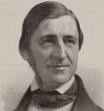
Multiple readings of “The Apology” on Librivox
Yina Liang reads "I'm Nobody! Who are You?" and discusses its relevance to her life, for the Favorite Poem Project.
David John Hart reads e.e. cummings’s poem “the Cambridge ladies who live in furnished souls”
Click print to listen.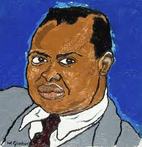
Countee Cullen reads an excerpt from his poem "Heritage"
John Ulrich discusses his favorite poem, “We Real Cool” by Gwendolyn Brooks, and its meaning in his life.
Click photo to listen.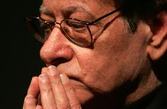
Al Jazeera reports on the mourning of the death of Mahmoud Darwish in Palestine, and remarks on his importance as a poet.
Xochil Goretsky reads Sherman Alexie’s poem, “The Powwow at the End of the World” at the California Poetry Out Loud State Champion competition.
HistoryTubeTV presents a mini-documentary on European imperialism in Africa.
Doris Lessing talks about her writing style.
Chinua Achebe discusses his work and the themes with which he works.
The three video clips below are a reaction from Binyavanga Wainaina to his text How to Write About Africa. Click photo to listen.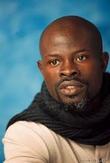
Djimon Hounsou reads “How (Not) to Write About Africa” for (RED)WIRE.
Documents and Text Resources
| ||||||||||||||||||||||||||||||||||||||||||||||||||||||||||||||||||||||||||||||||||||||||||||||||||||||||||||||||||
